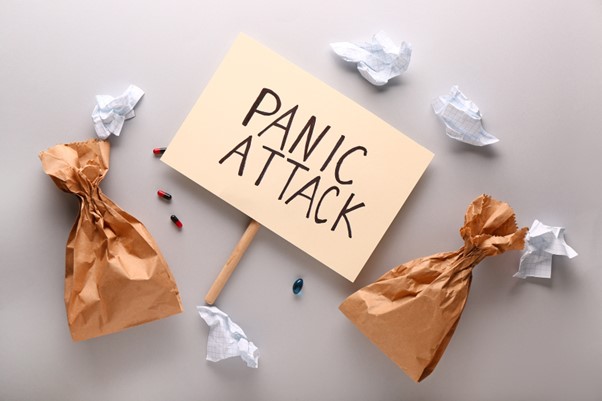Effective Strategies for Managing Anxiety

Effective Strategies for Managing Anxiety
Anxiety is a prevalent mental health condition that affects millions of people globally. Managing anxiety involves a combination of self-care techniques and professional help. Here are some effective strategies to help manage anxiety and improve overall well-being.
1. Slow Breathing
Practicing slow, deep breathing can help calm your nervous system and reduce anxiety. Techniques such as diaphragmatic breathing and the 4-7-8 method are particularly effective. Focused breathing helps to lower your heart rate and promote relaxation [2].
How to Practice:
- Diaphragmatic Breathing: Place one hand on your chest and the other on your abdomen. Breathe in slowly through your nose, ensuring your abdomen rises more than your chest. Exhale slowly through your mouth.
- 4-7-8 Breathing: Inhale for 4 seconds, hold the breath for 7 seconds, and exhale for 8 seconds. Repeat the cycle four times.
2. Progressive Muscle Relaxation
Progressive muscle relaxation involves tensing and then slowly releasing different muscle groups in the body. This technique helps to release physical tension and promote a sense of calm [2].
Steps:
- Start with your toes and work your way up to your head.
- Tense each muscle group for 5 seconds, then relax for 30 seconds.
- Notice the contrast between tension and relaxation.
3. Stay in the Present Moment
Mindfulness and meditation can help you stay grounded in the present moment, reducing the impact of anxious thoughts about the future or past. Techniques such as mindful breathing, body scans, and guided imagery can be beneficial [2].
Techniques:
- Mindful Breathing: Focus on the sensation of your breath entering and leaving your body.
- Body Scan: Pay attention to each part of your body, starting from your toes and moving up to your head, noticing any sensations without judgment.
4. Small Acts of Bravery
Facing your fears in small, manageable steps can help reduce anxiety over time. Gradual exposure to anxiety-provoking situations allows you to build confidence and decrease avoidance behaviors [2].
Approach:
- Identify a situation that causes anxiety.
- Break it down into smaller, less intimidating steps.
- Gradually expose yourself to these steps while practicing relaxation techniques.
5. Challenge Your Self Talk
Negative self-talk can exacerbate anxiety. Learning to recognize and challenge these thoughts can help reframe your mindset. Cognitive-behavioral techniques can be particularly effective in this area [2].
Steps:
- Identify negative thoughts.
- Evaluate the evidence for and against these thoughts.
- Replace negative thoughts with more balanced, realistic ones.
6. Regular Exercise
Physical activity is a powerful tool for reducing anxiety. Exercise releases endorphins, which are natural mood lifters. Aim for at least 30 minutes of moderate exercise most days of the week to see benefits [1].
Recommendations:
- Aerobic Exercise: Activities like walking, running, swimming, or cycling.
- Strength Training: Incorporate weight lifting or resistance band exercises.
7. Healthy Diet
A balanced diet can affect your mood and energy levels. Reduce caffeine and sugar intake, and ensure you’re eating plenty of fruits, vegetables, lean proteins, and whole grains [1].
Tips:
- Eat regular meals to maintain stable blood sugar levels.
- Include omega-3 fatty acids, found in fish and flaxseeds, which can support brain health.
- Stay hydrated to ensure optimal brain function.
8. Seek Professional Help
If anxiety is significantly impacting your daily life, it may be helpful to seek professional support. Therapists can provide strategies tailored to your specific needs, and medication may be recommended in some cases [1].
Options:
- Therapy: Cognitive-behavioral therapy (CBT) is particularly effective for anxiety.
- Medication: Anti-anxiety medications, such as SSRIs or benzodiazepines, may be prescribed by a healthcare provider.
Conclusion
Managing anxiety is a multifaceted process that involves both self-care strategies and professional support. By incorporating these techniques into your daily routine, you can take significant steps toward reducing anxiety and improving your quality of life. Remember, it’s important to find what works best for you and to seek help when needed.
🌐 Sources
- betterhealth.vic.gov.au – Managing and treating anxiety
- beyondblue.org.au – 10 strategies for managing anxiety
- adaa.org – Tips and Strategies to Manage Anxiety and Stress
- mayoclinichealthsystem.org – Coping with an anxiety disorder tips
- healthline.com – Do You Live with Anxiety? Here Are 13 Ways to Cope
- brainandlife.org – Effective Strategies for Managing Anxiety








Responses